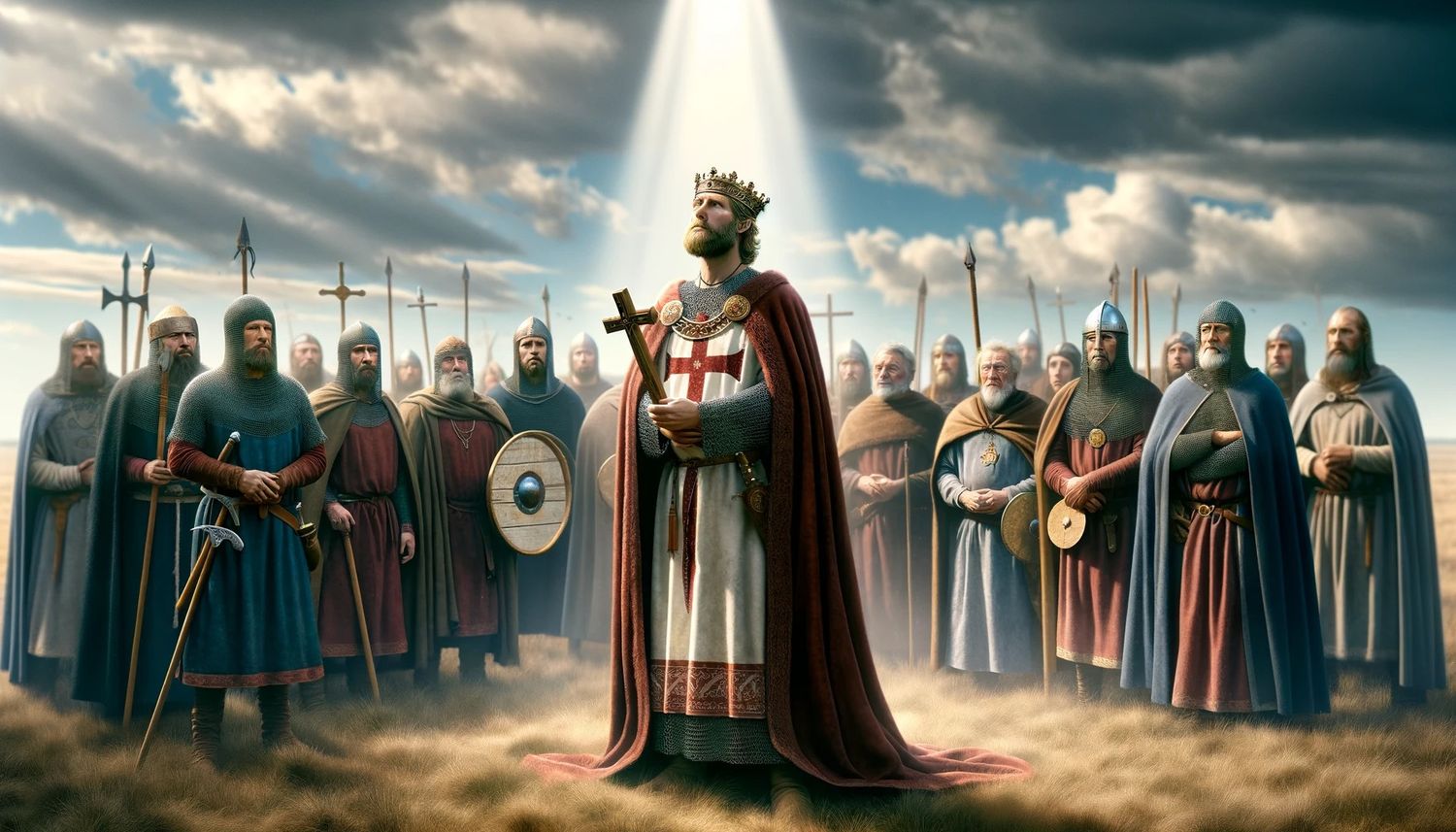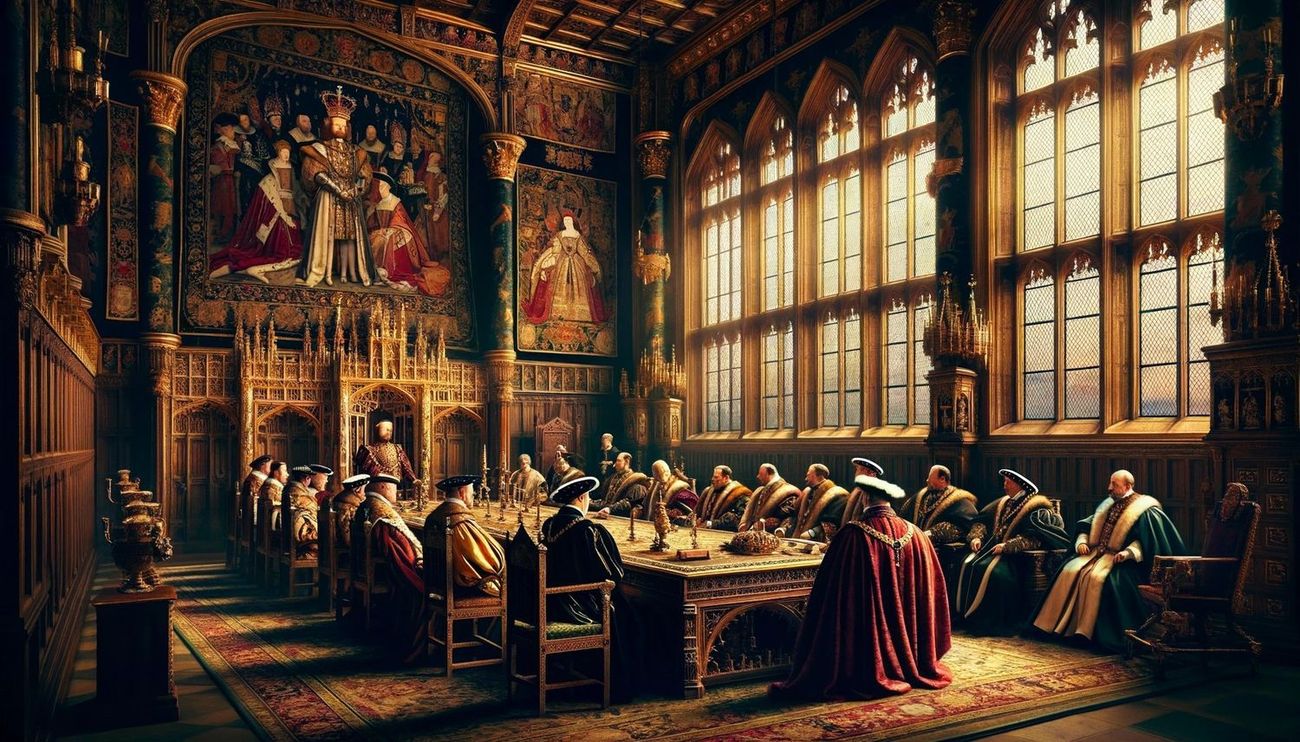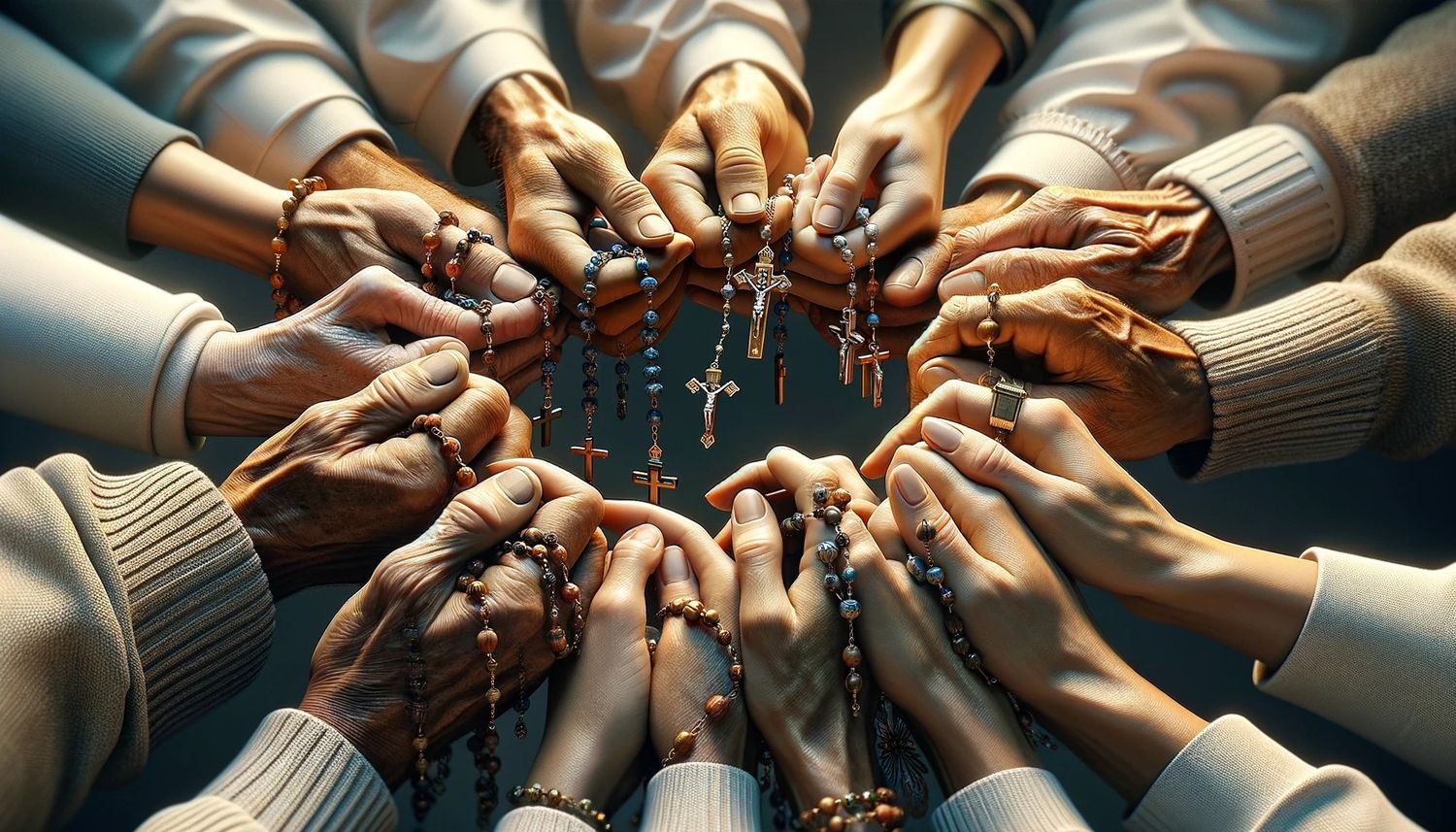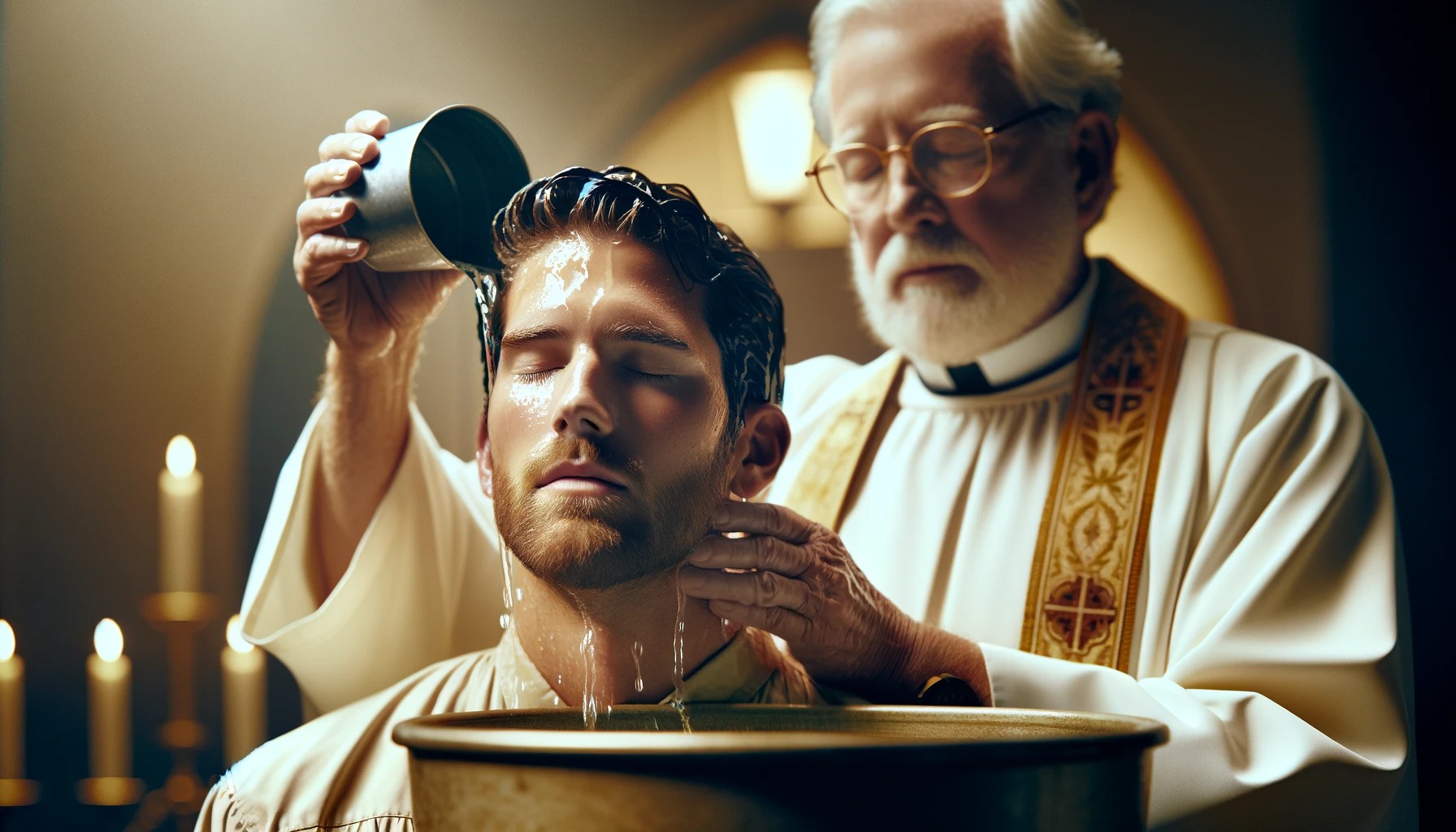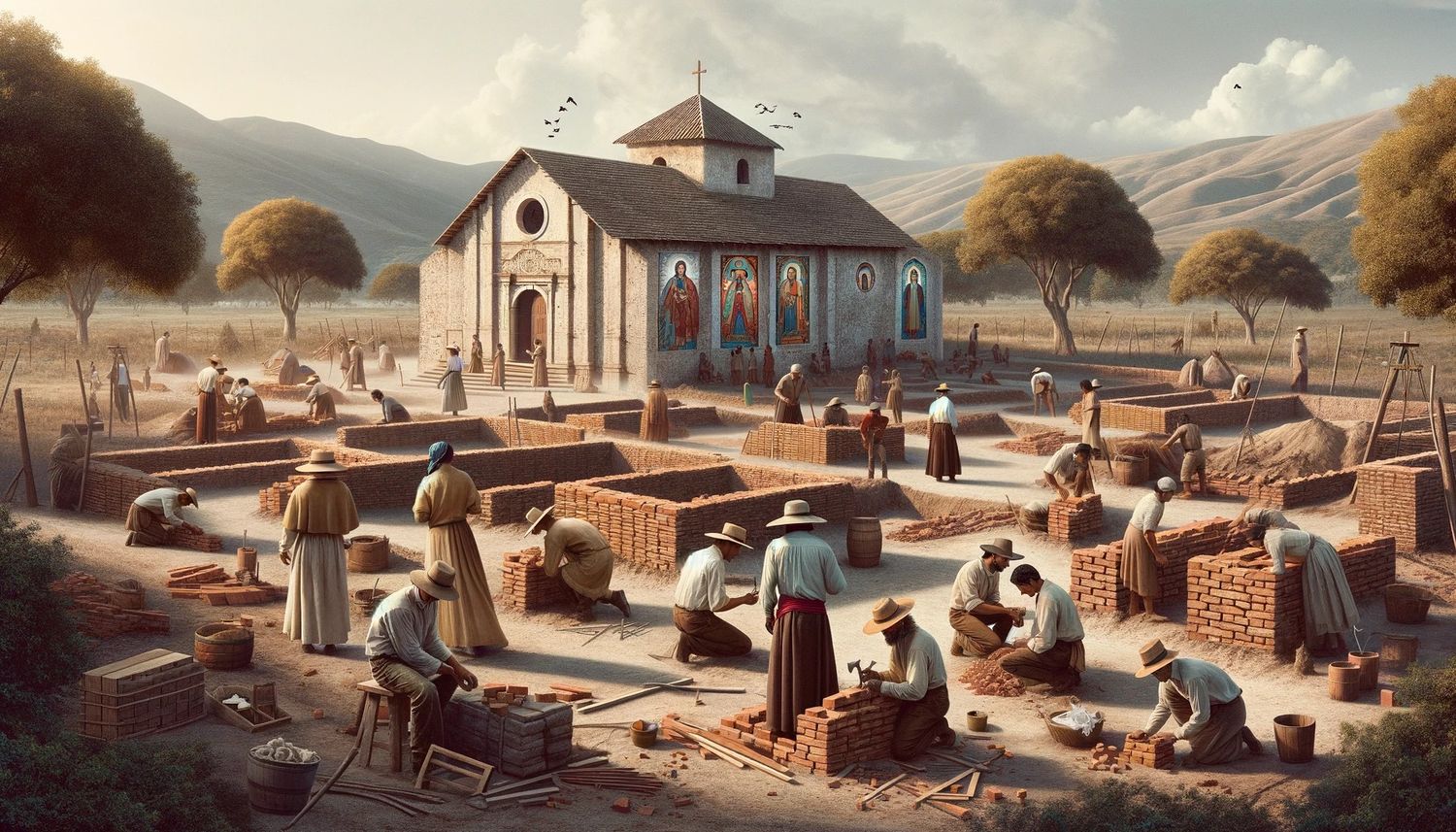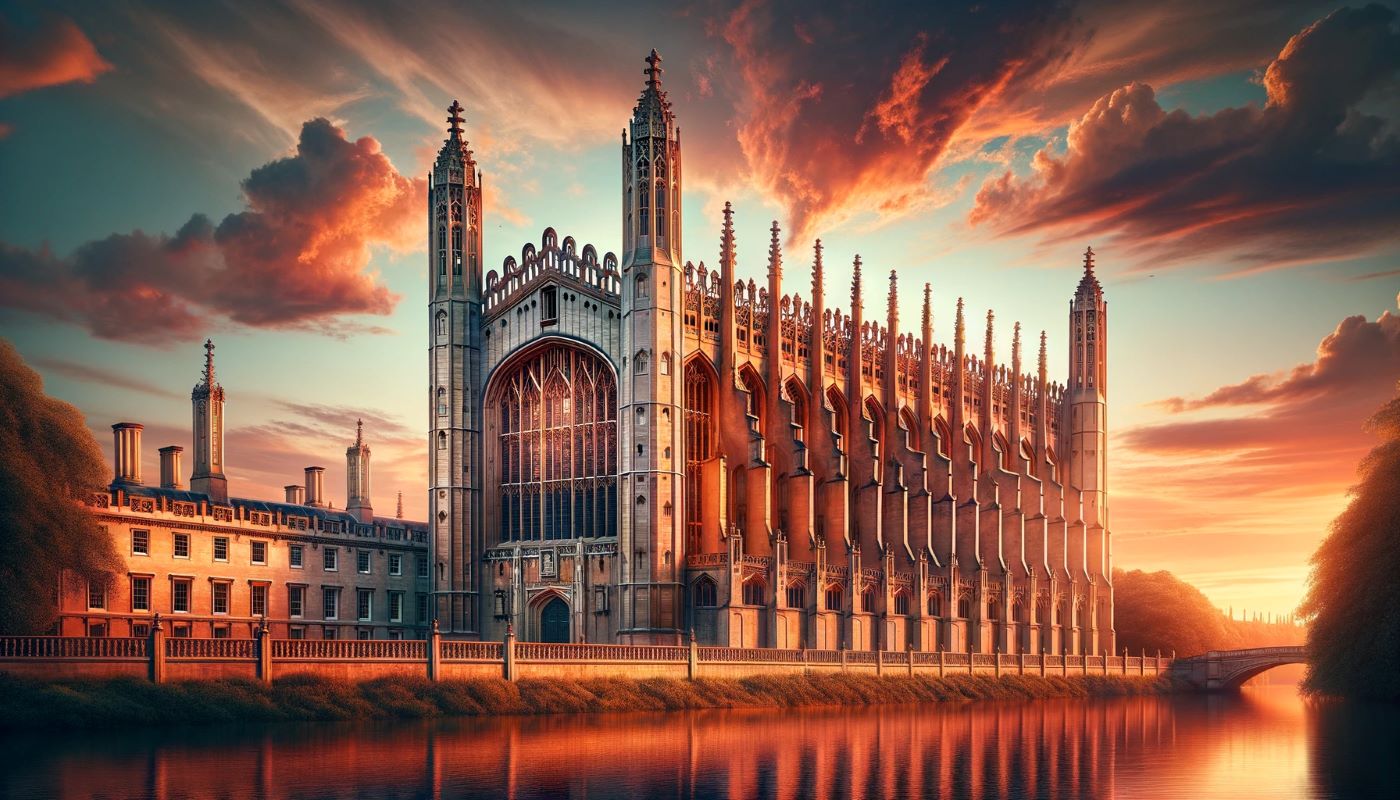Home>Theology and Spirituality>Why Did King Henry IV Convert To Catholicism
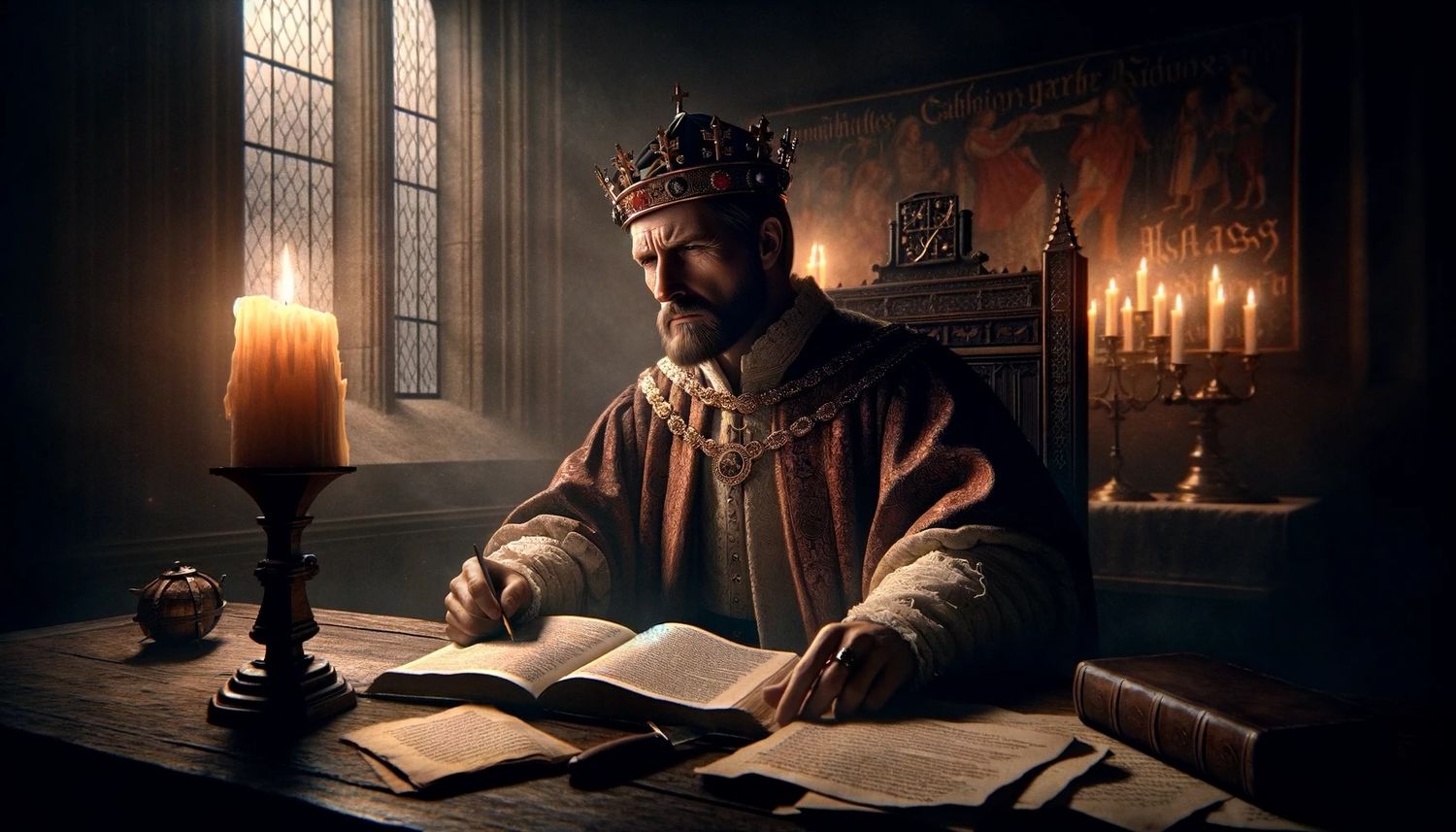

Theology and Spirituality
Why Did King Henry IV Convert To Catholicism
Published: February 17, 2024
Ericka Andersen, an editor at Christian.net, expertly merges digital strategy with content creation, focusing on faith and societal issues. Her communication skills enhance the platform's engaging narratives, fostering meaningful dialogue on belief's impact on society.
Discover the reasons behind King Henry IV's conversion to Catholicism and its impact on theology and spirituality. Explore the historical and religious significance of this pivotal decision.
(Many of the links in this article redirect to a specific reviewed product. Your purchase of these products through affiliate links helps to generate commission for Christian.net, at no extra cost. Learn more)
Table of Contents
Introduction
King Henry IV's conversion to Catholicism is a pivotal moment in history that continues to intrigue scholars and spiritual enthusiasts alike. This significant event, which took place in the late 16th century, marked a profound shift in the religious landscape of France and had far-reaching implications for the monarchy and the nation as a whole. Understanding the motivations behind this conversion requires delving into the complex interplay of personal beliefs, political expediency, and the broader religious dynamics of the era.
The story of King Henry IV's conversion is a compelling narrative that sheds light on the intricate relationship between faith and power. It offers a glimpse into the inner turmoil and external pressures faced by a monarch navigating the turbulent waters of religious conflict. By exploring the circumstances surrounding this momentous decision, we gain valuable insights into the intersection of spirituality and politics, and the enduring impact of such choices on individuals and societies.
As we embark on this exploration of King Henry IV's conversion to Catholicism, we will unravel the multifaceted layers of his early life, the religious influences that shaped his worldview, and the compelling factors that ultimately led to his embrace of Catholicism. Moreover, we will delve into the repercussions of this conversion, both in terms of its immediate effects on the political landscape and its enduring legacy in the annals of religious history.
Join us on this enlightening journey as we unravel the enigma of King Henry IV's conversion, seeking to comprehend the intricate tapestry of motivations, beliefs, and historical forces that converged to shape this pivotal moment in the life of a monarch and the destiny of a nation.
Early Life and Religious Upbringing
King Henry IV, born as Henry of Navarre, entered the world on December 13, 1553, in Pau, a city in the Kingdom of Navarre. His upbringing was deeply influenced by the religious turmoil that characterized 16th-century Europe. Henry was born into a family with a rich Protestant heritage, and his early years were shaped by the religious conflicts between Catholics and Protestants, which were tearing France apart.
Henry's mother, Jeanne d'Albret, was a staunch supporter of the Protestant Reformation and played a pivotal role in shaping his religious identity. Under her guidance, Henry received a Protestant education and was instilled with the principles of Calvinism. His formative years were marked by exposure to the teachings of John Calvin, the influential Protestant theologian, and the fervent adherence to the tenets of the Reformed faith.
The religious landscape of Henry's early life was fraught with tension and violence, as the Wars of Religion raged across France. These formative experiences left an indelible imprint on Henry, shaping his understanding of faith, power, and the complexities of religious coexistence.
Despite his Protestant upbringing, Henry's religious journey was marked by a degree of flexibility and pragmatism. His experiences during the tumultuous years of religious conflict instilled in him a nuanced understanding of the intricate interplay between faith and politics. This early exposure to religious strife and its profound impact on the fabric of society would later inform his approach to matters of faith and governance.
As Henry ascended to the throne and assumed the mantle of leadership, his religious upbringing continued to exert a profound influence on his worldview and decision-making. The seeds of religious tolerance and pragmatism sown in his formative years would eventually bear fruit in his approach to religious policy and his momentous decision to convert to Catholicism.
The confluence of Henry's Protestant upbringing, the religious turmoil of his era, and the exigencies of political leadership laid the groundwork for the complex tapestry of motivations that would ultimately culminate in his historic conversion to Catholicism. This pivotal moment in Henry's life would reverberate across the annals of history, leaving an enduring legacy that continues to captivate the imagination of scholars and enthusiasts alike.
Political Motivations for Conversion
The political landscape of 16th-century France was characterized by deep-seated religious divisions and incessant power struggles. Against this backdrop of turmoil and conflict, King Henry IV's conversion to Catholicism was not merely a personal spiritual journey but a strategic maneuver with profound political implications.
At the heart of Henry's decision lay the intricate web of power dynamics and the imperatives of statecraft. As a Protestant monarch in a predominantly Catholic realm, Henry faced formidable challenges in consolidating his rule and fostering stability. The religious schism that permeated French society posed a persistent threat to the cohesion of the kingdom, fueling internal strife and external threats from rival powers.
Recognizing the imperative of securing his reign and unifying a fractured realm, Henry astutely assessed the political calculus of his era. His conversion to Catholicism was a calculated move aimed at mitigating religious tensions, garnering broader support among the Catholic populace, and fortifying his legitimacy as the sovereign of a deeply divided nation.
Moreover, Henry's conversion was a strategic overture to reconcile with the Catholic establishment and alleviate the suspicions of influential Catholic factions. By embracing Catholicism, Henry sought to bridge the religious divide and cultivate a sense of unity among his subjects, thereby bolstering the stability of his rule and the cohesion of the kingdom.
The geopolitical dimensions of Henry's conversion cannot be understated. In a Europe rife with religious animosities and power rivalries, Henry's alignment with Catholicism served to allay the concerns of neighboring Catholic powers and mitigate the specter of external intervention. This calculated diplomatic maneuver aimed to position France favorably within the complex web of international relations, safeguarding the kingdom from the perils of external aggression and securing its standing on the continental stage.
Henry's conversion, therefore, emerged as a shrewd political stratagem, strategically calibrated to navigate the treacherous currents of religious conflict and power politics. It exemplified the astute statesmanship of a monarch who recognized the imperative of reconciling religious divisions and consolidating his authority in the service of national unity and stability.
In essence, the political motivations underpinning Henry's conversion to Catholicism underscored the intricate interplay of faith and governance, illuminating the pragmatic imperatives that guided his decision-making and the enduring impact of this strategic maneuver on the trajectory of French history.
Personal Convictions and Spiritual Journey
Amid the complex tapestry of political calculations and strategic imperatives, King Henry IV's conversion to Catholicism also bore the indelible imprint of his personal convictions and spiritual odyssey. Beyond the realm of political expediency, this momentous decision reflected the inner turmoil and profound spiritual quest that defined Henry's journey as a monarch and a man.
Henry's spiritual odyssey was marked by a profound introspection and a quest for religious reconciliation. His embrace of Catholicism was not a mere capitulation to external pressures or a calculated maneuver devoid of personal significance; rather, it represented a deeply introspective pilgrimage of the soul. Henry grappled with the weight of religious discord that plagued his realm, and his conversion bore the imprint of a sincere yearning for spiritual unity and reconciliation.
The monarch's personal convictions and spiritual journey were shaped by a nuanced understanding of faith and a profound empathy for the plight of his subjects. Henry's experiences amidst the crucible of religious conflict instilled in him a profound empathy for the suffering inflicted by sectarian strife. His conversion to Catholicism was, in many ways, a testament to his unwavering commitment to fostering religious harmony and alleviating the anguish wrought by religious discord.
Moreover, Henry's spiritual journey reflected a deep-seated pragmatism and a keen awareness of the imperatives of governance. His embrace of Catholicism was underpinned by a pragmatic recognition of the need to bridge religious chasms and forge a sense of unity among his subjects. This pragmatic dimension of his spiritual journey underscored his astute statesmanship and his unwavering commitment to the welfare and cohesion of the realm.
In essence, Henry's personal convictions and spiritual journey were intertwined with the broader tapestry of his reign, reflecting a monarch's profound introspection and a statesman's pragmatic resolve. His conversion to Catholicism bore the imprint of a sincere quest for religious reconciliation and a pragmatic recognition of the imperatives of governance, underscoring the intricate interplay of faith and leadership that defined his reign.
This section delves into the personal and spiritual dimensions of King Henry IV's conversion, shedding light on the profound introspection and pragmatic resolve that underpinned this historic decision. It offers a nuanced understanding of the monarch's inner journey and the complex interplay of personal faith and political imperatives that shaped this pivotal moment in history.
Impact of Conversion on King Henry IV's Reign
King Henry IV's conversion to Catholicism reverberated across the annals of history, leaving an indelible imprint on the trajectory of his reign and the destiny of France. This pivotal moment, marked by the monarch's embrace of Catholicism, engendered a profound transformation in the religious and political landscape of the kingdom, yielding far-reaching implications for his rule and the cohesion of the realm.
The impact of Henry's conversion on his reign was multifaceted, permeating the fabric of governance, religious policy, and the broader dynamics of societal cohesion. At the heart of this transformation lay the consolidation of religious unity and the cultivation of a sense of national cohesion. Henry's conversion served as a catalyst for religious reconciliation, fostering a climate of tolerance and understanding that sought to bridge the chasms of religious discord and mitigate the specter of internal strife.
Moreover, the monarch's alignment with Catholicism engendered a strategic realignment of alliances and power dynamics, both domestically and internationally. His conversion served to assuage the suspicions of influential Catholic factions, garner broader support among the Catholic populace, and fortify his legitimacy as the sovereign of a deeply divided nation. This strategic maneuver bolstered the stability of his rule and positioned the kingdom favorably within the complex web of international relations, safeguarding it from the perils of external aggression.
Furthermore, Henry's conversion precipitated a recalibration of religious policy, marking a pivotal shift in the monarch's approach to matters of faith and governance. His commitment to religious tolerance and the preservation of individual liberties, encapsulated in the Edict of Nantes, exemplified the enduring impact of his conversion on the trajectory of religious coexistence and the protection of minority rights. This landmark decree, promulgated in 1598, granted religious freedom to the Protestant minority, thereby fostering a climate of religious pluralism and laying the groundwork for a more cohesive and inclusive society.
In essence, the impact of Henry IV's conversion on his reign was profound and enduring, permeating the fabric of governance, religious policy, and the broader dynamics of societal cohesion. This transformative moment exemplified the monarch's astute statesmanship and unwavering commitment to fostering religious reconciliation, political stability, and the welfare of his subjects, leaving an enduring legacy that continues to resonate through the corridors of history.
Read more: Why Did Clovis Convert To Catholicism
Conclusion
In conclusion, King Henry IV's conversion to Catholicism stands as a testament to the intricate interplay of personal faith, political expediency, and the imperatives of governance. This pivotal moment in history, marked by the monarch's embrace of Catholicism, reverberated across the religious and political landscape of 16th-century France, leaving an indelible imprint on the trajectory of his reign and the destiny of the nation.
The multifaceted motivations underpinning Henry's conversion underscored the complex interplay of personal convictions, strategic calculations, and the imperatives of statecraft. His decision to align with Catholicism was not merely a capitulation to external pressures but a shrewd maneuver aimed at mitigating religious tensions, fortifying his legitimacy, and fostering national unity. This strategic realignment of alliances and power dynamics, both domestically and internationally, exemplified the astute statesmanship of a monarch navigating the treacherous currents of religious conflict and power politics.
Moreover, Henry's conversion precipitated a transformative shift in religious policy, culminating in the promulgation of the Edict of Nantes, a landmark decree that granted religious freedom to the Protestant minority. This enduring legacy of religious tolerance and the protection of minority rights underscored the enduring impact of his conversion on the trajectory of religious coexistence and societal cohesion.
The monarch's personal convictions and spiritual journey were intertwined with the broader tapestry of his reign, reflecting a profound introspection and a pragmatic resolve. His conversion to Catholicism bore the imprint of a sincere quest for religious reconciliation and a pragmatic recognition of the imperatives of governance, underscoring the intricate interplay of faith and leadership that defined his reign.
In essence, King Henry IV's conversion to Catholicism epitomized the convergence of personal faith, political acumen, and the imperatives of governance, leaving an enduring legacy that continues to captivate the imagination of scholars and enthusiasts alike. This pivotal moment in the life of a monarch and the destiny of a nation offers valuable insights into the enduring interplay of spirituality and power, and the profound impact of such choices on individuals and societies.





